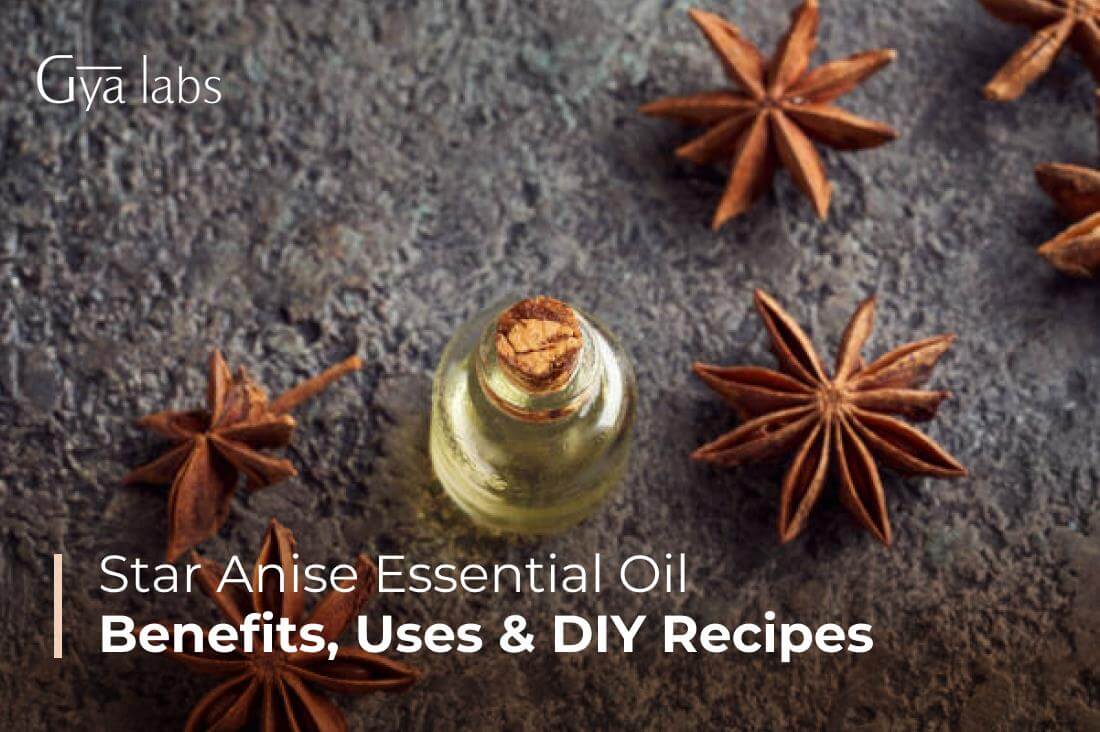Overview
Everyone wants to get rid of scars and wounds immediately. There are many store brought products that can help in fading away of scar. But people these days are relying on natural remedies for most of their issues and concerns. Essential oil is an effective natural remedy that can be used to git rid of scars naturally. And among these essential oils, one such natural elixir gaining prominence is lavender oil.
Many experts and studies have underscored the positive impact of lavender essential oil on the wound healing process. By accelerating granulation and wound contraction, lavender oil emerges as a promising agent in scar healing.
A critical component in scar formation is collagen, the structural protein responsible for tissue remodeling. Lavender oil has demonstrated the ability to influence the expression of collagen, potentially altering the course of scar formation.
In this article, we are going to explore how essential oil helps in quick and effective scar healing. We will evaluate the benefits and properties of this oil that works in favor of fading away of scar. Also, we will discuss the different ways to use this oil for scar removal. In the end, few DIY recipes have been suggested that can be used to incorporate this oil in your scar removal journey.
How Lavender Oil Benefits In Scar Healing?
1. Understanding Scars and the Healing Process
Scars form as the body's natural response to repair damaged tissue. This intricate process involves several stages:
- Inflammation: The body sends white blood cells to fight infection and initiate healing.
- Proliferation: New skin cells and blood vessels form, filling the wound.
- Maturation: Collagen, a protein responsible for skin structure, is remodeled, leading to scar formation.
Scar formation can be influenced by various factors, including the severity and location of the wound, age, genetics, and sun exposure. In scar healing, lavender oil may emerge as a pivotal player, offering a gentle and effective solution for those inclined towards natural remedies. Wounds treated with lavender shows quick healing.
2. The Potential of Lavender Oil
While research on the effectiveness of lavender oil for scar reduction is ongoing, some studies suggest promising results:
- Wound Healing Properties: Studies suggest that lavender essential oil might promote wound healing by increasing collagen production and enhancing tissue remodeling, potentially leading to smoother scar formation. The application of lavender oil on wound healing represents a natural and holistic approach to skincare, showcasing its potential to enhance the recovery process.
- Anti-inflammatory and Antiseptic Effects: Lavender oil possesses anti-inflammatory and antiseptic properties, which may help reduce redness, swelling, and the risk of infection, potentially contributing to a more favorable healing environment for the scar.
- Antioxidant Activity: Its antioxidant properties might combat free radicals that can damage healthy skin cells, potentially aiding in the overall healing process.
Important Considerations and Safe Usage:
Despite potential benefits, using lavender oil for scar healing comes with crucial considerations:
- Limited Research: While studies exist, more high-quality, comparative clinical trials are needed to definitively confirm its effectiveness for scar reduction in humans.
- Dilution is Essential: Essential oils are highly concentrated and can irritate the skin when applied directly. Always dilute lavender essential oil with a carrier oil like jojoba, coconut, or sweet almond oil before topical application. A ratio of 2-3 drops of lavender oil to 1 teaspoon of carrier oil is recommended.
- Patch Test Before Use: Conduct a patch test on the inner forearm to check for any allergic reactions before using it on the intended area.
- Not Suitable for Open Wounds: Never apply lavender oil to open or infected wounds. Consult a healthcare professional before using on broken skin.
- Pregnancy and Breastfeeding: Pregnant and breastfeeding women should avoid using lavender oil due to potential risks.
How to Use Lavender Oil for Scars
If you choose to explore lavender oil for scar management, follow these steps:
- Clean and dry the affected area.
- Dilute lavender essential oil with a carrier oil.
- Apply a small amount of the diluted oil to the scar, gently massaging it in.
- Use twice daily for several weeks.
- Monitor for any signs of irritation and discontinue use if necessary.
Remember:
- Consistency is key for any scar management approach.
- Patience is crucial as results may take time to become noticeable.
- Seek expert guidance from a dermatologist or healthcare professional for personalized scar treatment recommendations, especially for raised or keloid scars.
Following are some of the effective ways to use lavender oil for scar removal:
1. Topical Application
The topical application of lavender essential oil in wound healing has garnered attention for its role in collagen stimulation, granulation acceleration, and overall healing efficiency. The most common and direct method involves applying lavender oil topically to the scar.
Mix a few drops of lavender essential oil with a carrier oil, such as coconut or jojoba oil, and gently massage it into the scarred area. Regular application promotes collagen stimulation and may contribute to a smoother appearance over time.
2. Scar Massage
Incorporating a gentle massage technique while applying lavender oil can enhance its absorption and effectiveness. Massage promotes blood circulation, aiding in the distribution of essential nutrients to the scar tissue.
3. Aromatherapy
Inhaling the soothing aroma of lavender oil through aromatherapy can indirectly contribute to scar healing. Add a few drops to a diffuser or inhale the scent from a tissue to experience the calming and potentially therapeutic effects.
4. Bath Soak
Create a relaxing bath soak by adding several drops of lavender oil to warm bathwater. The absorbed lavender-infused water may benefit the skin overall, promoting healing and reducing the appearance of scars.
5. DIY Healing Salve
Craft a personalized healing salve by combining lavender oil with other skin-nourishing ingredients. Beeswax, shea butter, and vitamin E oil can create a potent salve to apply directly to scars, providing a protective and healing layer.
6. Scar Healing Serum
Blend lavender oil with other essential oils known for their skin benefits, such as tea tree oil or rosehip oil, to create a scar healing serum. This concentrated mixture can be applied sparingly to scars for targeted care.
7. Incorporate into Skincare Routine
Add a few drops of lavender oil to your regular skincare routine by mixing it with your favorite moisturizer or serum. This allows for consistent, everyday application, seamlessly integrating the benefits of lavender oil into your skincare regimen.
8. DIY Lavender Oil Spray
Create a soothing lavender oil spray by diluting it with water. Spritz the solution onto scars for a refreshing and easy application, providing a light and even coverage.
9. Lavender-Infused Gel or Cream
Mix lavender oil into aloe vera gel or an unscented cream to create a customized, soothing solution. This can be particularly beneficial for scars in areas prone to dryness.
10. Combine with Scar Massage Tools
Enhance the massage process by using scar massage tools, such as silicone brushes or rollers, in conjunction with lavender oil. This combination can stimulate blood flow and improve the absorption of the oil.
DIY Recipes To Fade Away Scars And Wound Using Lavender Oil
Recipe #1 - Lavender Oil Healing Salve
Ingredients:
- 2 tablespoons shea butter
- 1 tablespoon beeswax
- 2 tablespoons coconut oil
- 10 drops lavender essential oil
- 5 drops tea tree essential oil (optional for added antibacterial properties)
- 1 teaspoon vitamin E oil
Instructions:
- In a double boiler, melt shea butter, beeswax, and coconut oil together until fully liquid.
- Remove from heat and let it cool slightly.
- Add lavender essential oil, tea tree essential oil (if using), and vitamin E oil. Stir well to combine.
- Pour the mixture into a clean, airtight container and let it solidify.
How to Use: Apply a small amount of the salve directly to the scar. Massage gently until absorbed. Use it regularly for optimal results.
Benefits:
- Shea Butter: Provides deep moisturization, promoting skin elasticity.
- Beeswax: Creates a protective barrier on the skin, aiding in healing.
- Coconut Oil: Possesses antibacterial properties and supports overall skin health.
- Lavender Essential Oil: Promotes collagen production and soothes the skin.
- Tea Tree Essential Oil: Adds an extra layer of antibacterial protection.
- Vitamin E Oil: Known for its antioxidant properties, supports skin repair.
Recipe #2 - Citrus Infused Scar Healing Serum
Ingredients:
- 1 tablespoon rosehip oil
- 1 tablespoon jojoba oil
- 5 drops lavender essential oil
- 5 drops frankincense essential oil
- 5 drops lemon essential oil
Instructions:
- Mix rosehip oil and jojoba oil in a small, dark-colored glass bottle.
- Add lavender, frankincense, and lemon essential oils to the carrier oil blend.
- Close the bottle and shake well to combine all ingredients.
How to Use: Apply a few drops of the serum directly onto the scar. Gently massage until absorbed. Use it morning and night for best results.
Benefits:
- Rosehip Oil: Rich in essential fatty acids, supports skin regeneration.
- Jojoba Oil: Mimics the skin's natural oils, aiding in hydration.
- Lavender Essential Oil: Reduces inflammation and promotes healing.
- Frankincense Essential Oil: Known for its skin rejuvenating properties.
- Lemon Essential Oil: Contains citric acid, which may lighten dark scars over time.
Recipe #3 - Calming Chamomile Scar Healing Balm
Ingredients:
- 2 tablespoons cocoa butter
- 2 tablespoons sweet almond oil
- 10 drops chamomile essential oil
- 5 drops lavender essential oil
- 5 drops helichrysum essential oil
Instructions:
- Melt cocoa butter in a double boiler until fully liquid.
- Remove from heat and add sweet almond oil to the melted cocoa butter.
- Allow the mixture to cool slightly, then add chamomile, lavender, and helichrysum essential oils. Mix thoroughly.
- Transfer the balm to a clean container and let it solidify.
How to Use: Apply a small amount of the balm to the scar, massaging gently. Use it regularly for optimal scar healing.
Benefits:
- Cocoa Butter: Provides deep hydration and forms a protective layer.
- Sweet Almond Oil: Rich in vitamin E, supports skin health.
- Chamomile Essential Oil: Known for its calming and skin-soothing properties.
- Lavender Essential Oil: Reduces inflammation and promotes healing.
- Helichrysum Essential Oil: Has anti-inflammatory and skin-regenerating effects.
Conclusion
Also known by its botanical name, Lavandula angustifolia, lavender encapsulates the essence of nature's contribution to skincare, with its essential oil showing promise in wound healing.
While lavender oil's potential for scar reduction holds promise, it's important to maintain realistic expectations and prioritize research-backed advice from healthcare professionals. If you choose to incorporate lavender oil, prioritize safe and proper usage for optimal results. Remember, patience and consistency are key companions on the journey of scar management.















